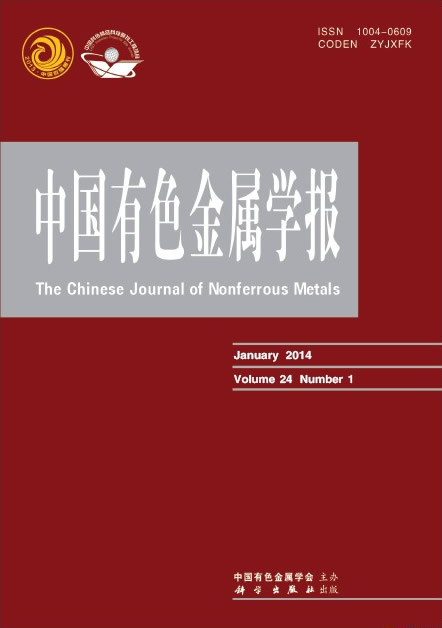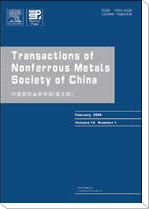中国有色金属学报(英文版)
Transactions of Nonferrous Metals Society of China
| Vol. 31 No. 5 May 2021 |
(1. College of Petrochemical Technology, Lanzhou University of Technology, Lanzhou 730050, China;
2. CAS Key Laboratory of Comprehensive and Highly Efficient Utilization of Salt Lake Resources, Qinghai Institute of Salt Lake, Chinese Academy of Sciences, Xining 810008, China)
Abstract:Lithium bis(fluorosulfonyl)imide (LiFSI) is a promising replacement for lithium hexafluorosphate due to its excellent properties. A solution to the corrosion of aluminum (Al) current collectors by LiFSI at elevated temperatures is essential. The mechanisms of Al corrosion in LiFSI-based electrolyte at 45 °C were studied with density functional theory calculations and spectroscopic investigations. It is found that the irregular, loose and unprotected AlF3 materials caused by the dissolution of co-generated Al(FSI)3 can exacerbate Al corrosion with the increase of temperature. Lithium bis(oxalate)borate (LiBOB) can effectively inhibit the Al corrosion with a robust and protective interphase; this can be attributed to the interfacial interactions between the Al foil and electrolyte. Boron-containing compounds promote the change from AlF3 to LiF, which further reinforces interfacial stability. This work allows the design of an interface to Al foil using LiFSI salt in lithium-ion batteries.
Key words: lithium-ion batteries; LiFSI-based electrolyte; lithium bis(oxalate)borate (LiBOB); corrosion inhibition; elevated temperatures; interfacial film


